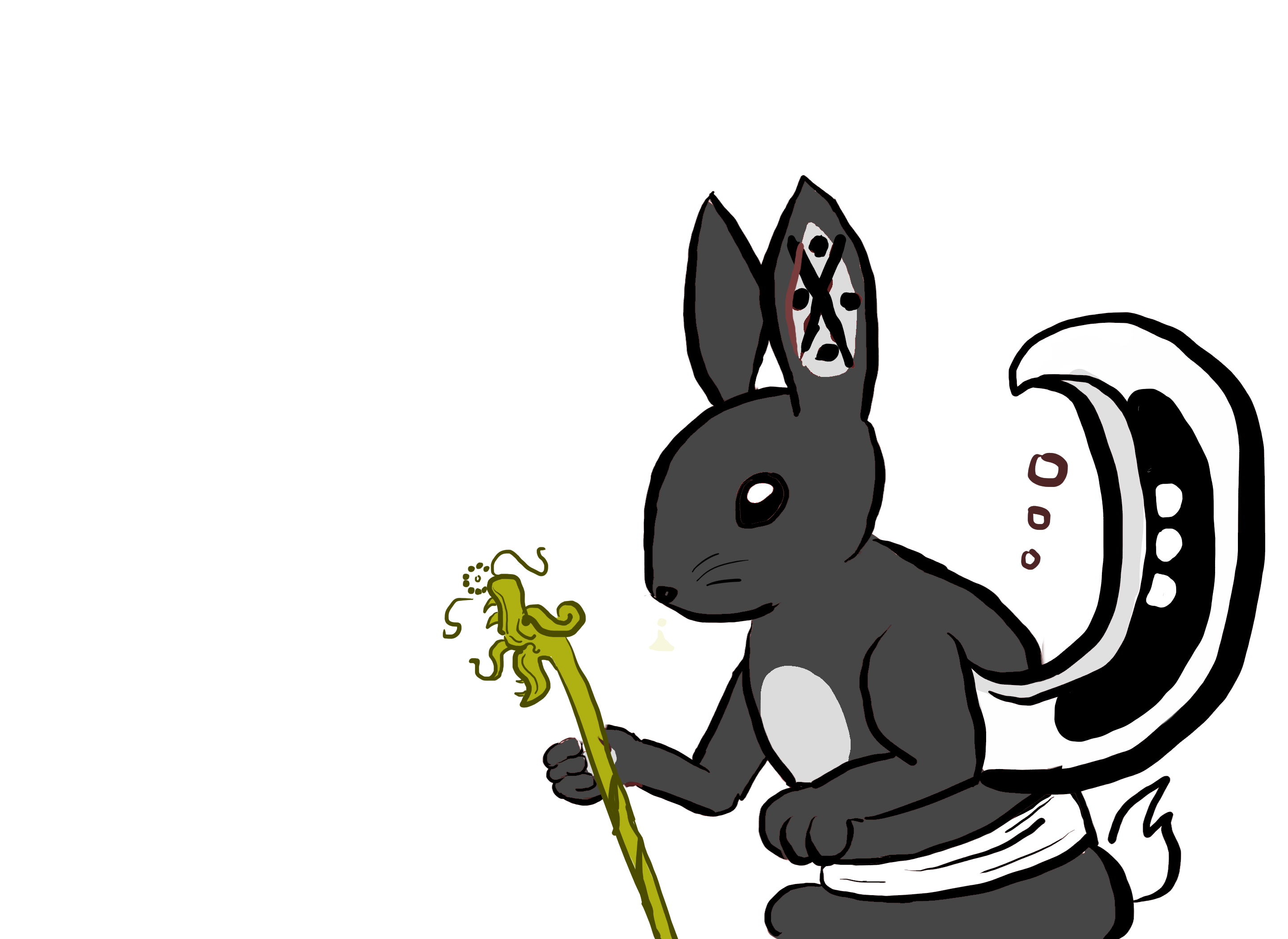- cross-posted to:
- politicalmemes@lemmy.world
- cross-posted to:
- politicalmemes@lemmy.world
How about (instead of communism) aiming for an economy made up predominantly of co-operatives, like in the Basque country in Spain? The Mondragon federation of co-ops.
That way money is distruted quite evenly but you don’t have to get into the whole politics thing.
The description of the first primitive church in Jerusalem is very close to an ideal anarchist commune.
Sadly… that doesn’t really track with Christianity.
I mean you can add the overall benefits of everyones needs are automatically met. There’s no talk of toiling for food etc…
But on top of the automatic fact that angels clearly have a hierarchy, god is clearly a full power ruler, there’s tons of verses that talk about people that will be the least in heaven, or greatest in heaven (Matthew 5:19). On top of building treasures in heaven (Matthew 6:19) etc…
military like hierarchy of the church.
Core spirituality vs institutional religious baggage
Sure if you count the holy book as institutional religious baggage. It’s cool, I never thought of it exactly that way but it definitely is.
The thing to understand about Christianity is that it was originally a reaction against the Roman empire and then got co-opted and integrated into it. As a result, ever since like the 4th century Christianity has been about basically the opposite of what Jesus talked about. It turns out all that stuff about turning the other cheek stops being relevant if the emperor has his soldiers paint crosses on their shields while they’re out conquering and enslaving the Gauls. Of course, you can keep all the mythological stuff, who cares, but anything relevant to politics or the material world mysteriously seemed to reverse once they entered the halls of power.
The carrot of being accepted into the empire was matched with the stick that if you didn’t go along with the imperial-approved form of Christianity you’d be burned at the stake as a heretic. Any sects still clinging to anti-imperial sentiment get hunted down and exterminated just like when they were being fed to lions, but it’s the Christians doing it to each other now, so you don’t even have to get your own hands dirty. This approach worked way better at suppressing dissent than just trying to ban Christianity altogether.
Of course, a lot has changed over the centuries. And originally it wasn’t perfect or anything either. But imo, it was when Rome Christianized that Christianity Romanized, and ever since its real values have had more to do with Rome than with Jesus. The meme’s, “moneyless, classless, stateless” ideal of heaven is a relic of the original teachings that gets shunted off to the purely mythological side, where it not only doesn’t matter, but also occupies a place in their brain that could have otherwise been sympathetic to making good things happen in the material world. That’s already resolved, there’s no need to worry about it, there’ll be pie in sky when you die.
They didn’t keep the mythological stuff, that got edited out too as needed once it started disagreeing with the State and the Church.
This is why christian fascism should not be the least bit surprising.
Great writeup comrade, I also wanna share this really interesting article from Roland Boer, going over this history a bit, and also outlining the historical intersections of communism and christianity.
That’s because there are no brown people in their version of heaven.
Ah now it all makes sense
And no one has to work, they are provided with everything they need. Almost like a universal basic income or something.
Heaven was literally [re]invented to be a description of utopia specifically so that toiling workers wouldn’t get distracted trying to create it on Earth.
“oooh heaven is a place on earth” take that shit literally, fam
Pie in the sky By and by
Even the more devout Christians I know (who actually have opinions about different theological positions) believe Earth and human society should not be modeled on heaven and attempts to do so will fail due to humans being inherently / essentially Fallen. This is part of how they rationalize their resistance / apathy towards movements for justice, at the very least they believe it is futile to seek justice in this life.
This is part of how they rationalize their resistance / apathy towards movements for justice, at the very least they believe it is futile to seek justice in this life.
Sounds like bullshit an unjust leader would feed them.
It is religion …
Yes it is doomed to fail. Doesn’t mean we shouldn’t try, at least help those in need. You know like our prophet/priest/king has told us to.
I don’t agree that it is doomed to fail, but I also don’t believe humans are inherently Fallen, and especially not in the particular soteriological sense that Christians believe (i.e. all later generations have inherited the guilt from the single act of disobedience by Adam & Eve dooming all of humanity to endless toil and suffering, as well as an evil nature).
That said, I do think humans behave in sometimes predictable ways, and it might be useful to look at what kinds of choices about society might alleviate suffering and promote well-being and fairness in society.
That said, I don’t think that’s going to happen without significant social upheaval, and that itself seems to bring about a lot of violence and the kinds of suffering I think we should all avoid … so, yeah - these are hard problems.
So, the people you have in mind don’t believe in free will? Isn’t that kind of un-Christian?
And if they believe that humans don’t have free will, then what’s the point of all the “SINNERS!” and punishment and threats of hell and whatnot? None of us are in meaningful control of our actions, so trying to coerce us to change those actions obviously isn’t going to work.
Also, if we’re all inherently evil, then we’re all going to hell regardless, so this whole religion is kinda pointless, no?
Yes, the Christians I am talking about believe in predestination, and they disagree with, for example, Baptists about whether people can save other people or whether people can save themselves. Instead they believe God predetermines who ends up being saved or not, through the grace of God alone.
And to answer your question about what is the ultimate point if there is no motivation through free-will, their answer is usually either “it’s a mystery” or “to glorify God”.
They still believe in a kind of free-will, but only within the confines of God’s pre-determined choices. God chose for you, but it was you that did the choosing and are responsible. One explanation I was given is that you make the choice out of free-will, and then God observes your choice and then goes back in time and determines it from the beginning. It’s not a coherent view, as far as I can tell - there is no compelling logical or reasonable compatibilist account they offer, it just sounds like contradiction and fantastic thinking.
Also, their view is that our nature is fallen (total depravity), and the only good is from God and God chooses who receives the gift of salvation and thus who will become cured of their evil nature. They believe they should do good things and proselytize to convert others to Christianity because God commands them to, not because those things will save themselves or anyone else. Obedience is very important to this mindset.
Nice write up. I often think of this verse from the first book of the new testament in the King James bible.
And when thou prayest, thou shalt not be as the hypocrites are: for they love to pray standing in the synagogues and in the corners of the streets, that they may be seen of men. Verily I say unto you, They have their reward.
-Matthew 6:5
Also, the bible tells us literally nothing about how heaven actually works or what people even do there. Meanwhile Marx wrote extensively about how he thinks a communist system would work. Heaven is not a “system” we can conceivably implement, because there’s nothing to implement. It’s just an abstract concept, and a very broad and ambiguous one at that.
Seems super boring like just enjoying the glory of god. I could go for like half a day max of enjoying the glory of god then let’s do something else.
It’s why I prefer mushrooms. Acid lasts too long.
Seek out and meet a christian anarchist. Those folks are badass and will change your idea of christianity’s potential (I’m agnostic).
My concept of Christianity is rather expansive, and Christian anarchists are often inspired by Tolstoy, who is someone I have read about and whose works I have given some attention. I can confirm they are rather different than most Christians - Tolstoy in particular rejected the Church after he saw they were committed to enabling war, which is clearly un-Christian. Dorothy Day is another relevant Christian anarchist, and I have worked with a Catholic Workers House locally, so I have some IRL exposure to these folks as well.
I tend to think “Christian” is an almost meaningless term without more context or clarification, people who call themselves Christians hold opposite views on many different positions. “Buddhism” is no different, if anything it is worse, so this isn’t particular to Christianity. Nor is it particular to religion, Marx spent some time in the Communism Manifesto clarifying what he meant by “socialism” and the different kinds of socialism he was aware of - there are many such overloaded terms and concepts. It seems particularly common in any political context, where there is power struggle it seems there are struggles between meanings for a particular word.
“Not like that!” My dads response when I tell him Jesus was a communist.
I don’t think communism is a moneyless system. Pretty sure people paid money for things in the USSR. Have there been any communist countries without money?
Yes, which is why the USSR never once in its history claimed to have built communism. The best they claimed was “developed socialism” with promises to build Communism someday
something that I don’t get about communism: how do you prevent people from redistributing their wealth unequally over time?
I don’t really have any politic views because the discourse on it is so big and the issues so complex, but lean more towards socialism
By the time we reach Communism, that is, the Marxist vision of a fully publicly owned and planned world economy, distribution of wealth will likely be based on need. There is no necessity for equal wealth, as humans have very unequal needs. Equal ownership of property is certified through public ownership.
If you’re asking what’s preventing someone from starting a business, it would be the sheer difficulties of actually starting one that can compete with the highly developed productive forces in the rest of the economy. Communism isn’t so much about outlawing private property, as developing beyond it.
Communism is a post-Socialist society, it must be global, highly developed, and have full public ownership, or close enough to those. The Soviet Union was, instead, Socialist, ie an economy where public ownership is the principle aspect. That being said, there were attempts at Cybernetics, and moving beyond money. These are actually incredibly interesting, and anyone interested in Socialism should look into those attempts.
If you want to learn more about Socialism and Communism, I recommend checking out my introductory Marxist-Leninist reading list.
Marx mentioned
I do be mentioning Marx
To understand this you need to understand the theory. Marx outlined that socialism and communism each had to be transitioned to after reaching a given level of social/economic development. In particular there is the notion of “withering away of the state” which would happen after a global revolution, which is the aim of this classless/moniless society they outlined.
The communist manifesto is a short read!
In fact the USSR implemented explicit market policies, a sort of contained capitalism, which was designed to facilitate reaching the necessary preconditions for socialism and communism. Essentially all of the “communist” states we’ve seen so far have been some play on the notion of just “socialism in one country” in the Marxist-Leninist version of communist parties, who have/had the goal of eventually reaching communism.
What’s probably most interesting is that the idea behind the USSR wasn’t initially to have the state direct everything from the top, but in fact to facilitate worker councils (soviets) to direct their workplaces.
But you have to remember this all happened in the context of a state which had recently undergone a revolution, was rife with counterrevolutonary action (see revolutionary France and civil war Britain to see how this played out during the birth of liberalism) and was then plunged into WW2 where most states involved were acting fairly dictatorially for the duration of it. Followed shortly by the US making it an explicit goal to prevent world communism through e.g. CIA intervention because they feared “domino theory”
Marx outlined that socialism and communism each had to be transitioned to
No. Socialism is an economic mode of production. Communism is a set of social relations that are theorized to appear out of material abundance. Communism uses socialism as a mode of production. There is no transition from Socialism to Communism.
Well, something that the Mormons have is they tried out communism. They called it the law of consecration. They had some fun times with trying to handle being productive and redistribution and poligamous. They ultimately concluded that they weren’t ready for it yet so they went back to default capitalism with tithing and poor/fast offerings.
Tl;dr: Mormons believe in a kind of communism in heaven, and they go hungry for 2 meals (24 hrs) to remember to give generously to the poor. https://en.wikipedia.org/wiki/Law_of_consecration?wprov=sfla1
‘They’ didn’t decide they weren’t ready. It was used to fleece the pathetic true believers for a short period until the inner circle felt sufficiently capitalized.
Communism is stateless ?? LMAO. OP has no clue what communism really is
Communism is stateless, but not without government, or what Engels calls “The Administration of Things.” For Marx, the “state” is made up of the instruments of society that uphold class distinctions, such as private property rights, and special bodies of armed people for those purposes. Public ownership and socialized ownership quite literally makes those aspects of society redundant, and thus “whithers away.”
Yes, and eggs are perfect spheres in Vacuum. In real world, any and every attempt at communism will lead to a situation where government becomes an all encompassing over bearing State. that’s why Socialism is a far better and much more practical model than communism ever will be.
I think you’re a bit confused on terms, here, as well as history.
Socialism is just an economy where public ownership is the principle aspect of the economy, rather than private. It’s a transitional system towards Communism, because markets naturally cebtralize and create efficient networks for central planning all by themselves. Cuba, the PRC, Vietnam, Laos, DPRK, former USSR, etc are all examples of Socialism.
Communism, the point at which the entire global economy can be publicly owned and planned, has not been reached. There have been Communist parties in charge of Socialist economies, but Communism itself is still in the future.
I think if you’re going to be discussing the practicality of Communism and Socialism, you’d do well to familiarize yourself with the systems more. Socialism is not in opposition to Communism, and is a prerequisite for it. I made an introductory Marxist-Leninist reading list if you want to become more knowledgeable about Socialism and Communism.
So it’s stateless but there’s a state according to the common definition but not according to a different definition that is less common. Got it.
Basically. Marx wrote in the 1800s, so there can be confusion from those who only keep a surface-level understanding of Marxism, say, by sticking to Wikipedia summaries. If you want, I can provide sources that help elaborate on what I’m talking about.
lots of unironic communists on lemmy?
Yep! Lemmy is primarily developed by Marxist-Leninists, and is generally structured in opposition to Capitalist networks. It allows Communists to form our own spaces without corporate censorship.
Which is why it’s a big irony when people come to Lemmy to complain about communism/socialism.
Like, man, you are on a decentralized network run by volunteers who don’t want to be monetized. You want to enjoy the benefits of socialism but at the same time complain about how bad it is and promote capitalism.
Yep, but that’s just how it is, and why I focus on outreach all the same.
You’re fucking incredible, Cowbee. I’ve watched you spend literally days patiently and politely responding to dozens of confrontational, probably bad-faith posters in thread after thread with nothing but solid information. I really admire it.
Thanks, I really do appreciate it! At the end of the day, I try to only speak on what I know, so that helps me not get frustrated if someone comes in in clearly bad-faith, haha.
just wanna second what @moonmelon@lemmy.ml said. you’re awesome.
i’d say “keep up the good work” but like you deserve a break.
Thanks for the kind words, and don’t worry! I do take frequent breaks, that’s why I made a Hexbear alt in the first place, haha.
Yeah, it was literally created by communists
Libs when free, open source, distributed and community supported platforms are not made by people who love capitalism and corporations 🤯🤯🤯🤯
Yup, but Lemmy is a federated service so if that fact makes you uncomfortable or something you can always spin up a liberal instance with corporations and classism.
Unfortunately, yes. Ignore the downvotes from the the mad people, and prepare your blocklist. It’s your right, after all.
Or… perhaps… talk to people and try to understand why they think the way they do. Who knows, maybe you’d hear something that makes sense. Just an idea! :D
I spent enough time in my teens and early 20’s doing that. I grew out of it when I got smarter and more jaded.
OP is gonna get banned by the admins for implying communism is stateless
Why would OP be banned for that? That’s what Marx literally stated. Marxists and Anarchists have different views on what the state is though, and thus both how to get rid of it and the final structure, so trying to claim Marx was using the Anarchist definition of the state to try to take the stance that Marx was an advocate for decentralized cooperatives and communes as a solution is wrong, if that was your implication.
Marxists see the state as an implementation of class oppression, Anarchists see it as a tool of hierarchy. As a consequence, Marxists see Communism as a fully publicly owned and planned, democratic government, while Anarchists want decentralized networks of Communes. For Marxists, the Anarchist solution retains class distinctions as each commune only has internal ownership and thus class is retained, while for Anarchists the Marxist solution retains the state as it retains hierarchy.
This struggle over analysis drives the major distinctions between each major school of Leftist thought. That doesn’t mean we do not share a common anti-capitalist and anti-Imperialist struggle, but it does mean the strategies and ends are different. If it was simply a question of strategy and timeline specifically, there would not be as much friction outside of explicitly non-sectarian spaces.
It is, pretty much every communist including ML’s here fully accept and support the notion that communism at the end is going to be stateless, as the state itself would become unnecessary. The differences come from the means which this end would be achieved.
I do feel that that wording can cause confusion. Marxists and Anarchists have a different view of what the state even is to begin with, and thus very different end goals. Marxists see the state as an implementation of class oppression, Anarchists see it as a tool of hierarchy.
As a consequence, Marxists see Communism as a fully publicly owned and planned, democratic government, while Anarchists want decentralized networks of Communes. For Marxists, the Anarchist solution retains class distinctions as each commune only has internal ownership and thus class is retained, while for Anarchists the Marxist solution retains the state as it retains hierarchy.
This struggle over analysis drives the major distinctions between each major school of Leftist thought. That doesn’t mean we do not share a common anti-capitalist and anti-Imperialist struggle, but it does mean the strategies and ends are different. If it was simply a question of strategy and timeline specifically, there would not be as much friction outside of explicitly non-sectarian spaces.
The end? No, no, no. The point where the state is abolished is the beginning. We don’t pack up and go home after we abolish the state. We live in the world we created. Everything before the state is abolished is preamble.
Yes, that’s implicit - you build something in order to use/live in it. The end I was talking about was referring to the end of the gradual transformation from capitalism to communism, it’s not an instant process.
Communism is just people trying to create heaven on earth but without God.

















